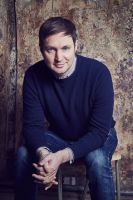 Jazz giant Thelonius Monk once said: "It's the space between the notes that's important". Those words are some of what ROLI founder, Roland Lamb lives by. You can easily see it in his work on the MPE-enabled Seaboard and BLOCKs series of products, which simply must be experienced to be totally understood.
Jazz giant Thelonius Monk once said: "It's the space between the notes that's important". Those words are some of what ROLI founder, Roland Lamb lives by. You can easily see it in his work on the MPE-enabled Seaboard and BLOCKs series of products, which simply must be experienced to be totally understood.
It was easy to do an interview with Roland. He is quick, learned, engaging, and thoughtful. The hard part was editing Roland's thoughts to an acceptable interview length because there are so many of them...
Let's start with your background and what role music has played in it.
I'm happy to tell you about that. I have done a whole bunch of different things that, in a way, may not seem to hang together. Basically, I grew up in rural New Hampshire, and I was home schooled as a young kid. When I was in high school I was in a jazz band and really into piano. I mostly taught myself how to play.
Any musicians that you particularly admire?
My father is a very good boogie-woogie piano player. A lot of his influences are from the '30s. My version of rebellion was to move to Bebop, and the person I love the most is Thelonius Monk. Someone said, about Monk, that he was, "Always searching for the space between the white and black notes. It was almost like a sense of pitch bend within the piano."
And the other most inspiring person for me was Herbie Hancock (who practices Nichiren Buddhism). I loved his touch and the way that he interpreted Jazz in his more electronic music, and that to me was something that was incredibly cool. I moved to Japan, shaved my head, and lived in a monastery for a while, to learn the history of Buddhism and the philosophy.
What was the genesis of your interest in eastern philosophy?
I was always into questioning things, and I was always into the meaning of life and the purpose, and had a natural distrust for authority and the explanations that were out there. I spent a lot of my time as a teenager reading philosophy and trying to find answers. And then I thought, maybe it's not about the words so much, but it's about the experience of life.
![]() I spent time in China, and India, and became interested in the way language structures our experience and structures the world. At first I thought, I'll find the answer in language, then I progressively came to feel like language and the structure of our context is a big part of the problem. We each grow up with a particular language, and those filters that are provided by language. So what I wanted to think about or study or understand was why, and how, do we understand exactly what those filters are and how they work. So I went to Harvard to learn classical Chinese and Sanskrit so that I could think of those philosophies from the perspective and understanding from the inside.
I spent time in China, and India, and became interested in the way language structures our experience and structures the world. At first I thought, I'll find the answer in language, then I progressively came to feel like language and the structure of our context is a big part of the problem. We each grow up with a particular language, and those filters that are provided by language. So what I wanted to think about or study or understand was why, and how, do we understand exactly what those filters are and how they work. So I went to Harvard to learn classical Chinese and Sanskrit so that I could think of those philosophies from the perspective and understanding from the inside.
"Inside" meaning inside the world where they are everyday?
Yea. Everything is ultimately moving and changing. But language kind of crystallizes the world into particular structures, but it does so in slightly different ways according to the language. So I wanted to understand which philosophical problems arose because of language itself, and which philosophical problems arose because of the particular structure of one language versus another language.
How did you come to start your own company?
I did a two-year design degree at the Royal College of Art in London. About the same time, a lot of the music that I was listening to was by saxophone players and guitarists. I wanted to be able to kind of wail, in the sense of playing solo and having the inflection, the kind of accent that you can add to a melody to give it a sense of depth and body, but I couldn't really get that from a traditional keyboard. I thought, "I'm going to try to make a new kind of piano that is both continuous and discreet so I can play it like a piano, but also move and slide and add vibrato."
So, I had in my mind what the gestures were going to be. And then through the process of sketching and thinking, I came up with the idea of it being more like a wave-like structure. It would allow me to play on the tops of the waves. One of the thought processes I had around it—going back to my philosophical work—was that, in a way, music is all about process. The things that feel more like process to us are things like the melodies, things that move and change. Rhythms feel like these repeating moments and structures, and percussive instruments are more about being discreet rather than continuous. So the piano is a more discreet instrument than a violin, for example.
When I started the Seaboard development I had never really done any professional design work. I didn't know anything about CAD, or about prototyping or anything. And I didn't know anything about engineering, or software, or firmware, or material science. I just kind of threw myself into it and started building prototypes, and models, and mockups, and buying different materials, and playing with different things. I would go home each day with little pieces of plastic and silicone and things all over my shirt.
I built some prototypes, and I thought, "Wow, something that I can play like a piano, but that I can also use intuitive musical gestures for greater depth of expression." I had written my thesis on Chinese Sanskrit philosophy, and there were two or three people who could read it and think it was interesting. With the Seaboard suddenly I had this new invention that I could show to anyone and they'd be like, "Wow, that's really cool. It's like a new kind of piano." That was exciting for me.
Did home-schooling have any relationship with your ability to allow these different disciplines to form what turned out to be your ultimate vision? Do you think that was a benefit?
Yeh, I do think so. Both my home-schooling and later alternative schooling made me feel like I was in the driver's seat for my life, and I needed to take the initiative to figure things out for myself. My parents were both readers, so being around people who were interested in ideas and were thoughtful definitely made a difference. A lot of the tools that I needed to figure things out were in books that I could find. I didn't need to accept the world as I found it, and that I wasn't going to get a lot of the answers handed to me on a platter. And also, I was able to spend a lot of time practicing the piano and making music.
How do you think people will be teaching instruments like the Seaboard in five years? And, what about the nomenclature to recreate a performance or language when you factor in these additional gestures and components?
It's a great question. Seaboard is a digital instrument. And, as a digital instrument, it means that there are methodologies of learning that are totally different from traditional acoustic instruments. If you're learning the violin, you can't get a data sheet or dashboard that tells you your consistency and vibrato windows or something during an exercise. When you're practising a difficult piece, it can't tell you or show you a graph of how you've performed it compared to other times you've practiced it, but on the Seaboard you can do things like that. So I think in addition to supporting traditional methodologies of documentation and learning and notating music, we can offer a whole set of digital tools that allow people to get into it and understand what they're doing. That's something that we're starting to work on, and it feels like an exciting new direction.
For me, a musical instrument is 10% about the physical object and the sounds and the technology, and 90% about culture. And the benefit of the Seaboard, and one of the main reasons why the Seaboard has been successful, is that it's able to build off of and be grafted onto the existing culture of hundreds of years of people playing piano, and music that's been written for the keyboard can be played on a Seaboard and then kind of extended.
I do hope that at places like Berklee College of Music, in five years there will be Seaboard classes—at least like master classes—and places where people are learning and sharing and all of that.
You have recently released the second generation of BLOCKS. What adjustments have you made, and has there been anything that has surprised you about the way people are using them?
We released Seaboard BLOCK and Touch BLOCK in June, and the next-generation Lightpad Block M is a significant update on the original Lightpad BLOCK. We've also made huge improvements to the software options associated with BLOCKS. With the collection of BLOCKS available today you can create a wide variety of music, and can also clearly see the power and versatility of BLOCKS as a solution for music creation in the mobile age.
I'm excited by lots of different content that I've seen created with BLOCKS, and pleased to see people using them in all different kinds of ways. I've been particularly happy to see people using BLOCKS in various environments around the world, and seeing new software being developed for BLOCKS which shows original and creative thinking about their potential.
ROLI has grown fast. What has been most satisfying, and what has been the biggest obstacle you've had to overcome since you've started on this journey?
Some of those moments of feeling just the joy of seeing something that I thought of as a dream reflected out to the world and people are using it and using it in ways I didn't think of. I really love music and I really feel like music is this very long conversation that we're all having with each other, and it's a conversation that's about aesthetics and emotion and the world and our possibilities in it. And it's important in every generation that we say new things in music. So to feel like the Seaboard plays some small role in that conversation and how it moves and develops is super satisfying and super exciting.
I'll bet.
And there are moments like seeing the Seaboard in the movie La La Land. We gave that Seaboard to Ryan [Gosling]. He's actually a good musician...
Nice! I remember thinking: Wow, that happened fast. And challenges?
In terms of the challenges and obstacles, maybe the biggest one has been figuring out how to communicate to my team at every level really what my vision is for these products. And to some extent, also learning how to communicate that in a wider way to the market and to people and customers around the world, because I believe that we can both put music making tools in the hands of more people, and we can create new avenues of expression for people who are clearly devoted to music.
So that whole communication process has definitely been challenging. I found this, maybe most specifically, when I was raising the first little bit of money. I'd been building all of these prototypes myself for a couple of years, so I was terrible at the execution—I'm not an engineer or a material scientist or a designer or a software engineer. But, even though I'm inexperienced at the execution of all of those disciplines, I was clear on what my vision was.
I raised some money and I hired, like, ten people who were much better than I am at those specific disciplines. But getting everyone to understand it in the same way was a real challenge. I had made major upgrades over the couple of years that I was working on my own—I had a much better prototype—and I hired more people and thought now it should go ten times as fast, but instead it went one-tenth as fast, because people couldn't coordinate and understand what we were trying to achieve in exactly the same way and see the whole picture.
The Mythical Man-Month...
Yeh. When I read that book. I was like: "Oh my God! Why didn't I know that?" But I think that particularly applied, not only in software development, but in trying to communicate fairly abstract ideas and then build them.
Do you have enough time now to still do the dreaming?
I do. ROLI now has operations people in place, and now I can take a bit of a step back and focus a bit more on the big picture, and the next thing, and then the next thing after that.
The fact that we've been able to make a really expressive controller that is affordable and is also very versatile is a big step. But the modularity of it means that people will be able to build kits. The dashboard software that we recently released allows you to write different programs for each BLOCKS and put them together and build these customized music making experiences, which is really exciting.
We're just getting started on the promise of that modular system and over the next months, and perhaps years, I think we're going to be doing more and more to really make BLOCKS into an instrument that you can grow with and that grows with you, and it also allows people to push boundaries in new ways. I think it's going to be another step in changing the way that people think about digital music making.
If you haven't yet you should definitely check out ROLI's products, or any kind of MPE-enabled devices. There is a slight learning curve. Keyboard players will have to adjust their styles. Check out the video below from Jordan Rudess), but the huge benefit will be the amazing increase in expressiveness that has been traditionally reserved for string and wind instrument players.
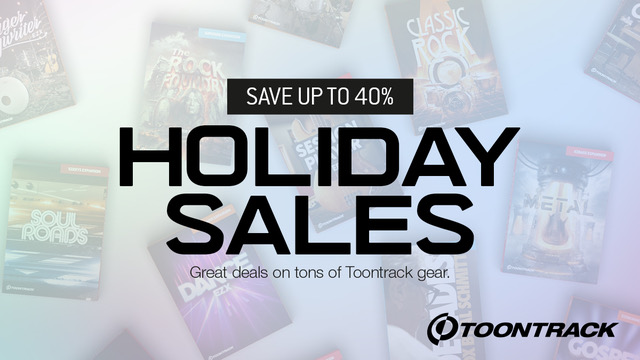


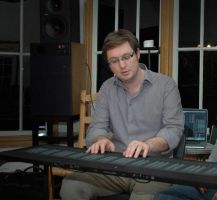
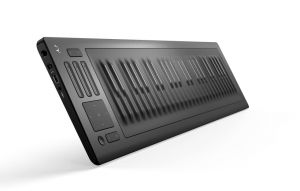
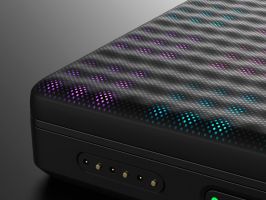
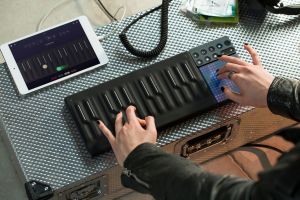
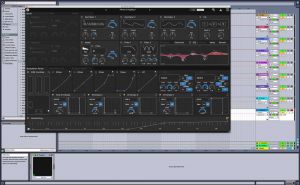


 Other Related News
Other Related News